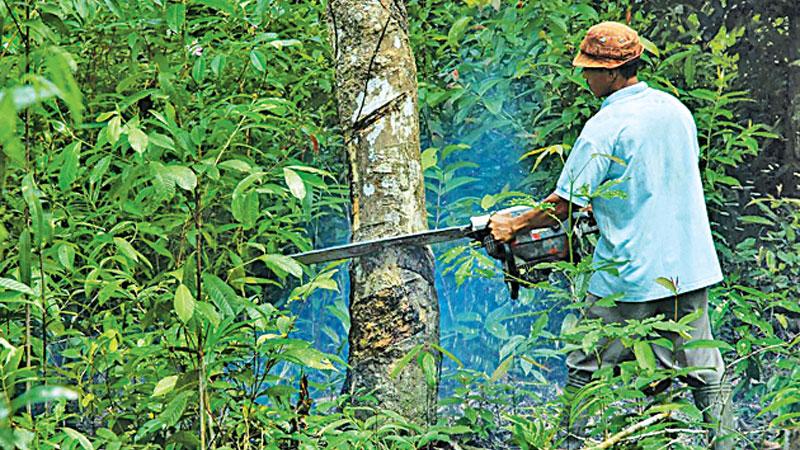
The government will launch a forest-based strategy to combat the threat of climate change in Sri Lanka and has embarked on increasing the extent of forest cover in the country.
“Sri Lanka, at present, has a forest cover of 29.7 percent. The government has an ambitious plan to increase it to 32 percent in the coming years, and a three-pronged strategy - reducing deforestation, reducing forest degradation and sustainable management of forests is under way. The action plan has addressed the issues successfully so far,” Conservator General of Forests and the National Program Director of Sri Lanka, Anura Sathurusinghe said.
“Deforestation is responsible for 27 percent of global warming. However, there is a huge challenge to balance the two aspects of achieving development and preserving the forest cover. Nearly 8,000 hectares of forest is destroyed annually due to development activities and if measures are taken to reduce it we could preserve the forest cover,” he said.
The environment directly affects business entities and there is an overall impact due to climate change.
Therefore, it is necessary to preserve the forest cover for sustainable development, he said. Through the Sri Lanka NEXT initiative, the government is committed to achieving a sustainable development pathway that delivers broad-based economic growth while also contributing to the global fight against climate change.
While the reduction of emissions is given priority by progressive nations worldwide, the United Nations has been supporting the government to find practical ways to safeguard and maintain the island’s forest cover through the UN REDD program for nearly four years.
The UN – REDD program, which is the United Nations collaborative initiative on Reducing Emissions from Deforestation and forest Degradation (REDD), is currently supporting 64 developing countries to prepare and implement forest-based national strategies aimed to combat the threat of climate change. Spearheaded by the Forest Department, Department of Wildlife Conservation and Climate Change Secretariat, a multi stake-holder consultative process of the government has resulted in the National REDD+ Strategy, which is named the National REDD+ Investment Framework and Action Plan (NRIFAP).
The first copy of this document was presented to President Maithripala Sirisena recently.
